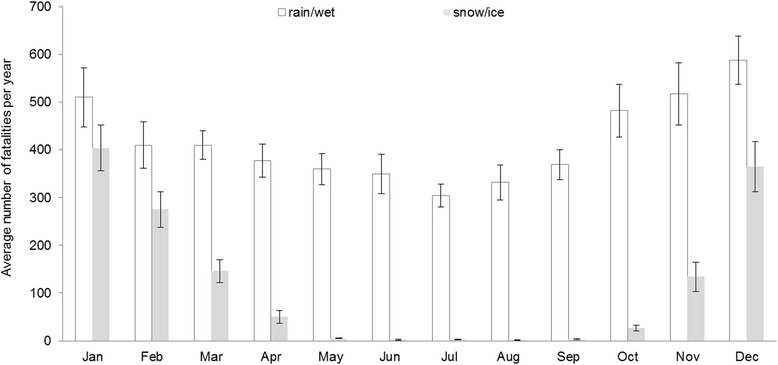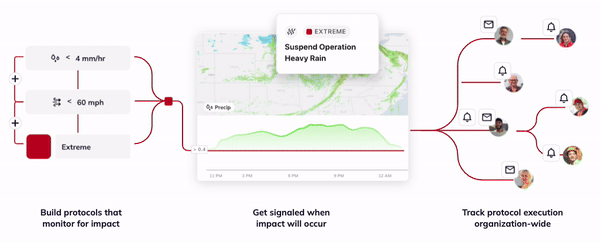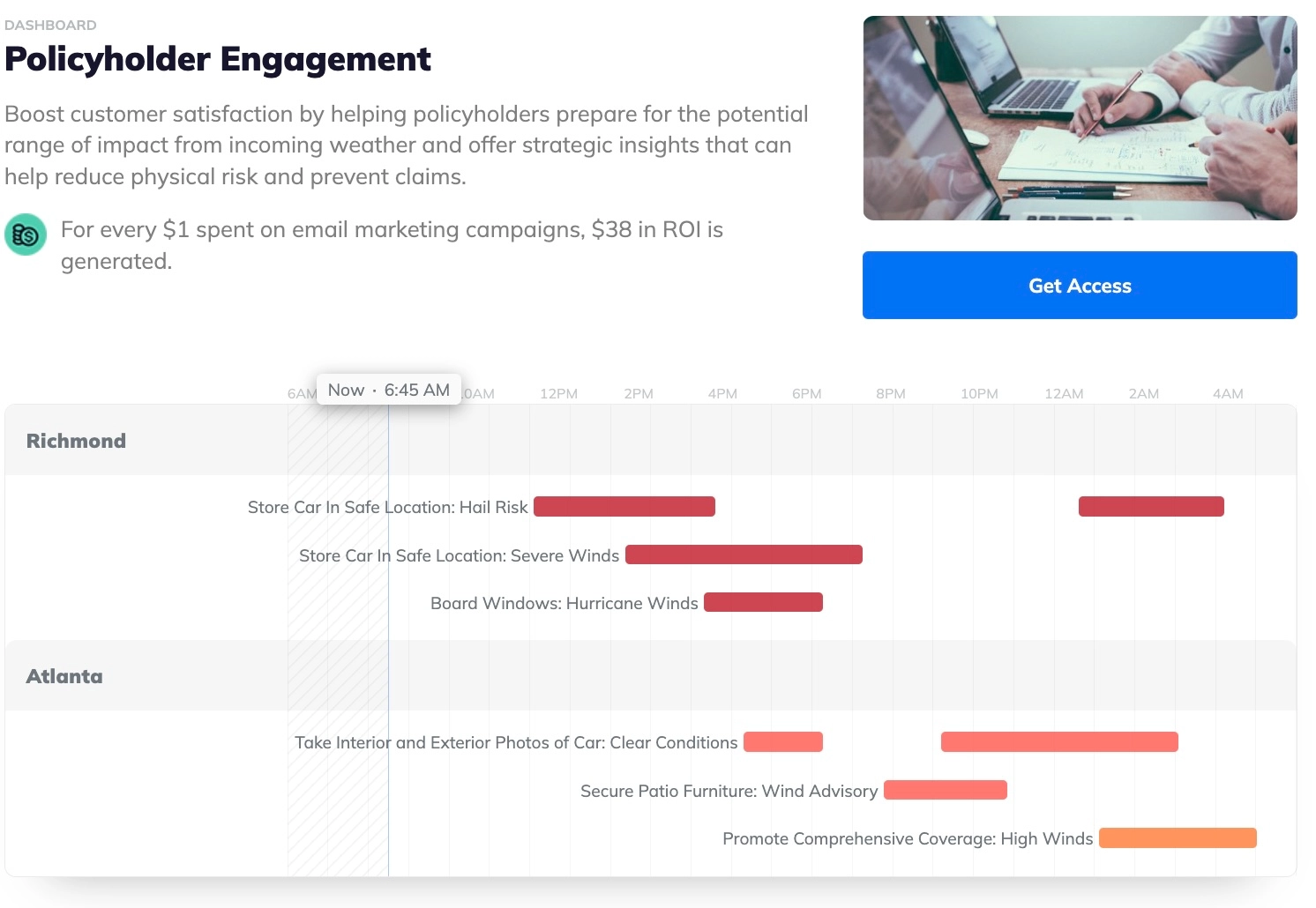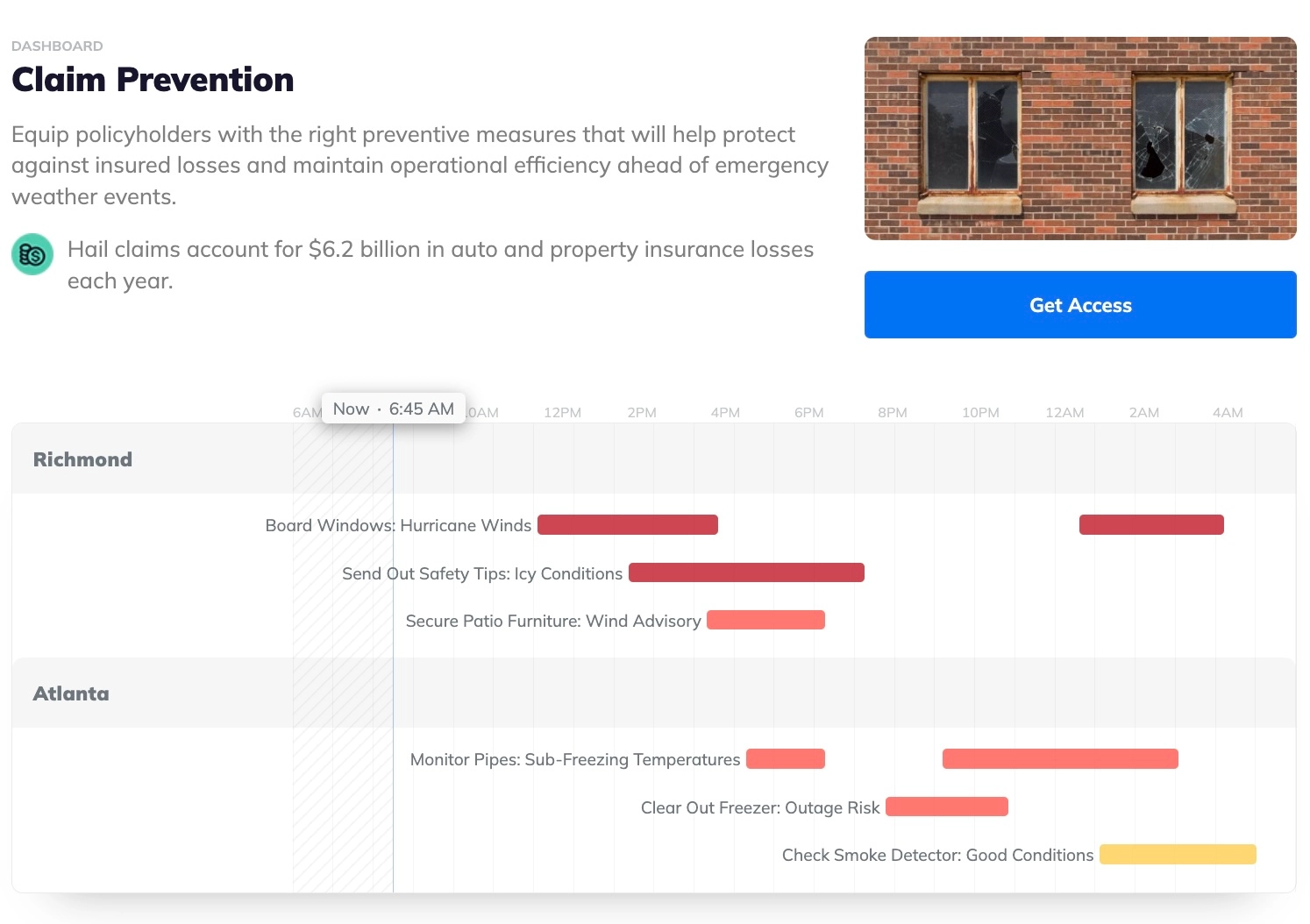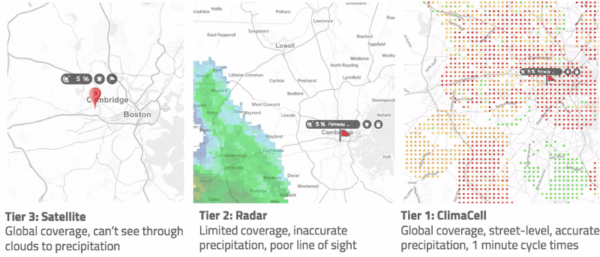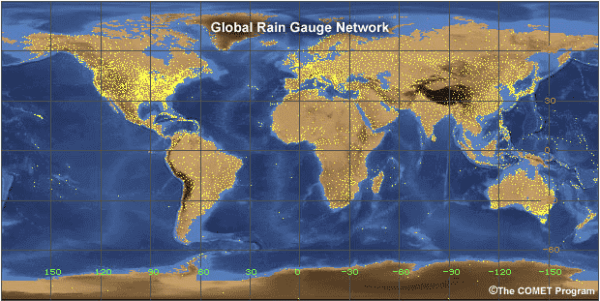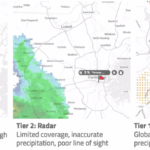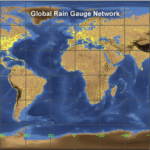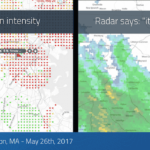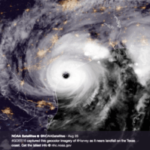TL;DR:
- Weather-related incidents account for over 20% of all vehicle accidents in the US, highlighting the need for better risk management strategies in auto insurance.
- Advanced weather prediction technologies can help insurance companies accurately assess weather-related risks, improve policy pricing, and enhance claims management.
- Weather data such as temperature, precipitation, wind speed, and visibility levels are crucial for understanding driving conditions and tailoring insurance policies.
- Tomorrow.io offers tools and solutions that leverage weather data to enhance auto insurance policies, streamline operations, and improve customer satisfaction.
- Integrating advanced weather data into auto insurance policies can lead to substantial financial savings, operational efficiency, and enhanced customer loyalty.
Over the last few years, drivers have faced Mother Nature’s fury.
Increasingly unpredictable weather patterns have significantly impacted road safety and vehicle conditions.
According to a study by the National Highway Traffic Safety Administration (NHTSA), weather-related incidents account for over 20% of all vehicle accidents in the United States.
Annually, the U.S. sees nearly 6 million car accidents, with 1.2 million caused by hazardous weather conditions.
This increase in weather-related accidents and fatalities shows the critical need for more effective risk management strategies in auto insurance.
Insurance companies face the challenge of accurately assessing these weather-related risks to provide adequate coverage while maintaining profitability.
This is where advanced weather prediction technologies come into play. By leveraging detailed and accurate weather data, insurance companies can significantly improve their auto insurance policies, resulting in better risk assessment, precise policy pricing, and efficient claims management.
This article explores how insurance businesses can harness the power of weather data to enhance their auto insurance offerings, ultimately saving money, time, and effort.
Understanding Auto Insurance
Definition:
Auto insurance is a type of coverage designed to protect vehicle owners against the financial risks associated with adverse weather conditions and road accidents. This insurance can cover losses due to events such as storms, floods, icy roads, and other weather-related hazards. By providing a safety net, auto insurance helps ensure that drivers can recover and repair their vehicles even after experiencing significant weather-related incidents.
Common Challenges:
Insurance companies face several challenges when offering auto insurance. One of the most significant is accurately predicting weather-related risks. Traditional methods of risk assessment often fall short due to the inherent unpredictability of weather patterns. Additionally, determining the appropriate pricing for policies and managing claims efficiently adds to the complexity. These challenges highlight the need for more sophisticated tools and data to enhance the effectiveness of auto insurance.
The Role of Weather Data in Auto Insurance
Advanced Weather Prediction Technologies
Weather prediction technologies have advanced significantly in recent years, providing more accurate and granular data than ever before. These technologies utilize satellite imagery, radar systems, and sophisticated algorithms to forecast weather conditions with high precision. This wealth of data allows insurance companies to make informed decisions about risk assessment and policy pricing.
Types of Weather Data:
Several types of weather data are particularly relevant to auto insurance, including:
- Temperature: Monitoring temperature variations can help predict icy road conditions.
- Precipitation: Accurate data on rainfall helps assess the risk of flooding and slippery roads.
- Wind Speed and Direction: Understanding wind patterns is crucial for predicting storms and their impact on road safety.
- Visibility Levels: Data on fog and low visibility conditions help in assessing accident risks.
By leveraging these data points, insurance companies can better understand the weather-related risks that affect driving conditions and tailor their policies accordingly.
How Weather Data is Utilized in Auto Insurance
| Aspect | Description | Example |
|---|---|---|
| Risk Assessment | Weather data is crucial for assessing the risk of adverse weather events on road safety. By analyzing historical weather patterns and forecasting future conditions, insurance companies can determine the likelihood of events such as ice, snow, and floods affecting driving conditions. This data-driven approach allows for a more accurate evaluation of risks associated with insuring vehicles. | For instance, an insurance company might use historical ice and snow data to assess the winter driving risk for a particular region. By comparing this data with current weather forecasts, they can make informed decisions about the level of coverage required. |
| Policy Pricing | Accurate weather forecasts and historical data help insurance companies determine the appropriate pricing for their policies. By understanding the risk factors associated with different weather conditions, insurers can set premiums that reflect the true cost of coverage. | A hypothetical scenario might involve an insurer using flood zone data to price policies for drivers in a region prone to heavy rainfall and flooding. The data enables the insurer to offer competitive premiums while ensuring they remain financially viable. |
| Claims Management | Weather data can streamline the claims management process by providing real-time insights into weather events as they occur. This helps insurers quickly validate claims and determine the extent of damage. | An example could be the use of real-time storm tracking to verify vehicle damage claims following a severe storm. This allows insurers to process claims more efficiently and accurately. |
Impact Areas for Insurance Companies
Accurate weather data brings substantial financial savings to insurance companies.
By leveraging precise risk assessments, companies can set premiums that accurately reflect the likelihood of weather-related events. This ensures that collected premiums are adequate to cover claims, preventing financial strain. For example, an insurance company using advanced weather prediction technologies to evaluate flood risks can avoid unexpected high payouts during flood seasons, thereby optimizing financial resources and enhancing profitability.
Operational efficiency is another significant benefit. Integrating weather data into the underwriting process streamlines operations, reducing the time and effort required for risk assessment and policy adjustments. Automated data analysis and risk evaluation enable quicker decision-making and policy issuance. An insurer utilizing automated weather data analysis can swiftly adjust policies and premiums in response to changing weather forecasts, ensuring that their coverage remains relevant and accurate without extensive manual intervention.
Customer satisfaction is greatly enhanced by providing accurate and timely coverage based on weather predictions. Drivers benefit from insurance policies tailored to their specific weather-related risks, ensuring they receive appropriate compensation when adverse weather events occur. For instance, a driver with an insurance policy that includes real-time ice warnings can take preventive measures to avoid accidents, reducing losses and increasing trust in their insurer. This proactive approach leads to higher customer loyalty and positive word-of-mouth referrals.
Tomorrow.io’s Tools, Solutions, and Services
Tomorrow.io offers a comprehensive suite of tools and solutions designed to enhance the effectiveness of auto insurance policies through precise weather data. Their advanced weather prediction technology leverages satellite imagery, radar systems, and sophisticated algorithms to provide accurate and granular weather forecasts. This enables insurance companies to make informed decisions regarding risk assessment, policy pricing, and claims management.
One of Tomorrow.io’s services standout features is its robust weather data available through a weather API. This data is useful for understanding the influence and impact of weather on policyholders, claim prevention, claim validation, and more.
The data offers historical archives and real-time weather insights that can help underwriters, claims adjusters, and actuaries consider the weather when determining policies and claims.
For instance, insurers can cross-reference a driver’s claim of vehicle damage due to a storm with real-time storm alerts and historical weather data, ensuring accurate and justified payouts.
Tomorrow.io also facilitates informed decision-making by offering precise early warnings and preventative measures for extreme weather events. Insurance companies can provide policyholders with timely alerts about impending weather conditions, allowing them to take preventive actions. This not only reduces potential damages but also enhances customer satisfaction by demonstrating proactive support.
Moreover, Tomorrow.io’s predictive coverage needs feature helps insurers engage with policyholders to offer tailored policy recommendations.
By analyzing weather data, insurers can identify regions at higher risk for specific weather events and offer appropriate coverage options. This targeted approach ensures that drivers receive the most relevant and effective insurance products.
Additionally, Tomorrow.io’s pre-built insurance dashboards provide a quick start for companies looking to integrate weather data into their operations. These templates help insurers rapidly deploy solutions for flood risk management, storm damage claim prevention, and policyholder engagement, boosting operational efficiency and customer satisfaction.
By integrating Tomorrow.io’s cutting-edge tools and solutions, insurance companies can enhance their auto insurance offerings, streamline operations, and improve customer satisfaction, ultimately leading to better financial outcomes.
Conclusion
Integrating advanced weather data into auto insurance policies offers significant benefits for insurance companies.
By leveraging Tomorrow.io’s cutting-edge tools and solutions, insurers can achieve accurate risk assessment, precise policy pricing, and efficient claims management. This approach not only leads to substantial financial savings and operational efficiency but also enhances customer satisfaction through proactive support and tailored coverage options.
Utilizing weather prediction technologies is essential in an industry where weather unpredictability poses significant challenges.
Insurance companies that embrace these advancements will be better equipped to protect drivers, ensure profitability, and stay ahead in a competitive market.


